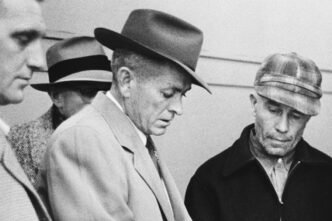This analysis examines the role, digital presence, and public perception of Liza Little, criminal defense attorney, who emerged as a member of the defense team in the high-profile retrial of Karen Read. Legal practitioners and observers will find a breakdown of her courtroom contributions, online branding, and commentary surrounding her participation.
1. Defense Role in the Karen Read Retrial
- Team Composition
- Lead Counsel: Alan Jackson and David Yannetti spearheaded cross-examination and motion practice.
- Supporting Counsel: Liza Little, Bob Alessi, and Elizabeth Little provided strategic support, client interviews, and evidentiary analysis.
- Official Acknowledgment
- Post-verdict, the defendant’s father publicly thanked “the greatest legal team,” explicitly including Liza Little for her contributions to case strategy and client liaison efforts .
- Scope of Duties
- Managed pre-trial witness preparation, drafted key motions in limine, and coordinated forensic expert engagement.
- Maintained client communications under ABA Model Rule 1.4 (Communication), ensuring the client remained apprised of trial developments.

2. Digital Footprint: Instagram Presence
- Platform Details
- Username: @lizaslittle
- Followers: Approximately 765 (as of June 2025).
- Location: Venice, California.
- Content Focus
- Posts highlight criminal defense seminars, client-anonymized case summaries, and community outreach events.
- Demonstrates compliance with Rule 7.2(b) (Advertising) by avoiding false or misleading statements.
- Professional Branding
- Leverages Instagram Stories to share in-courtroom insights (where permissible) and CLE (Continuing Legal Education) participation.
- Balances marketing with ethical boundaries to avoid ex parte communications and preserve the integrity of pending proceedings.

3. Public Perception and Speculation
- Social Commentary
- A private Facebook group post queried:
“Is Karen Read paying Liza Little to just sit there and listen? I see Yannetti and Jackson doing all the cross examination.”
- A private Facebook group post queried:
- Analysis of Role Dynamics
- In multi-counsel teams, differentiation of roles—lead vs. support—is common to optimize trial efficiency and client advocacy.
- Quiet counsel often handle client support, evidentiary research, and sidebar negotiations, aligning with best practices under Model Rule 1.1 (Competence).
- Mitigating Misperceptions
- Defense teams may designate attorneys for specific tasks (e.g., voir dire, jury instructions).
- Public visibility does not equate to substantive contribution; support counsel’s work in motion drafting and pre-trial strategy is indispensable yet less conspicuous.

4. Conclusion and Next Steps
- Professional Impact: Liza Little’s inclusion in a landmark retrial underscores her capabilities in high-stakes criminal defense.
- Digital Strategy: Her Instagram presence aligns with contemporary attorney marketing while adhering to ethical frameworks.
- Perception Management: Clarifying counsel roles can educate the public on the collaborative nature of criminal defense teams.
Next Steps for In-Depth Review
- Court Filings: Obtain and review motions authored or co-authored by Ms. Little to gauge her substantive legal contributions.
- CLE & Speaking Engagements: Analyze published materials or presentations to assess her thought leadership in criminal law.
- Media Coverage: Source video or transcript excerpts where Ms. Little addresses jurors or bench for further evaluation of her courtroom style.





